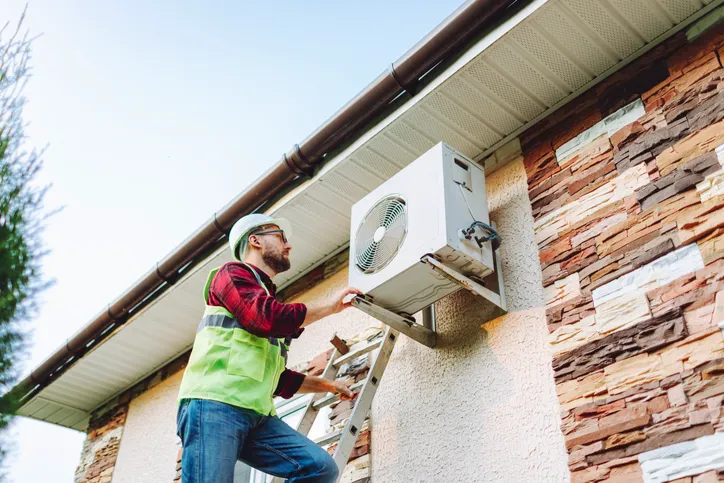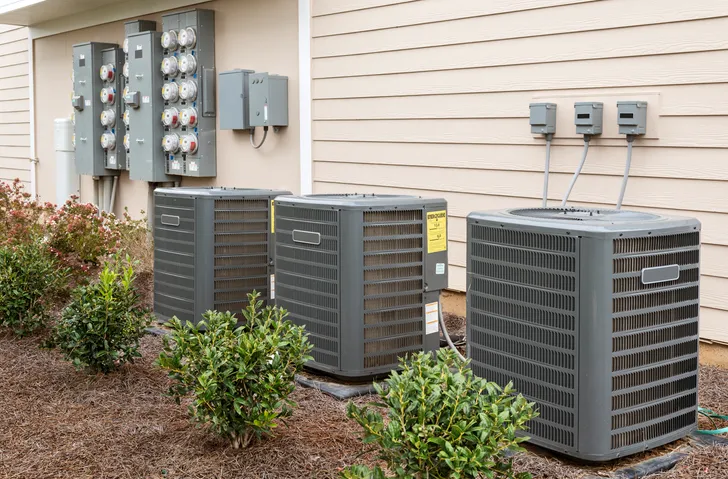HVAC Inspection for Real Estate in Malibu, CA
Serving Ventura & Sacramento Counties

A thorough HVAC inspection for real estate in Malibu, CA gives buyers, sellers, and escrow agents the clear, documented condition of heating and cooling systems before a property changes hands. In Malibu’s coastal environment—where salt air, marine layers, and wildfire smoke create unique stresses on equipment—an inspection tailored to real estate transactions protects value, informs negotiation, and satisfies disclosure requirements. This page explains what a real-estate HVAC inspection covers, the common red flags in Malibu homes, the diagnostic process, repair recommendations, and the certification reports typically accepted for escrow and disclosure.
Why an HVAC Inspection Matters in Malibu Real Estate
- Protects buyers from unexpected repair bills by documenting system age, condition, and performance.
- Gives sellers a clear list of issues to address before listing, which can speed escrow and reduce renegotiation risk.
- Provides escrow officers and agents with an auditable report for disclosures, liability protection, and lender requirements.
- Highlights Malibu-specific risks—corrosion from salt spray, clogged coastal air intakes, and post-fire smoke damage—that standard inspections can miss.

What a real-estate HVAC inspection covers
A real-estate HVAC inspection goes beyond a basic tune-up to deliver transaction-ready documentation. Typical elements include:
- Visual inspection of indoor and outdoor units (air handlers, condensers, furnaces, heat pumps).
- Operational testing: cooling and heating cycles, thermostat calibration, and system response under load.
- Safety checks: gas line integrity, combustion efficiency (for gas furnaces), venting, carbon monoxide risk.
- Electrical inspection: connections, fuses, breakers, and control wiring condition.
- Refrigerant check: pressure levels, leaks, and proper charge.
- Ductwork evaluation: leaks, insulation, rodent damage, and blockage.
- Filtration and IAQ components: filters, humidifiers/dehumidifiers, UV/air purifiers, and evidence of smoke or mold.
- Photographic documentation and a concise condition summary for escrow or disclosure packets.
Common HVAC Red Flags in Malibu Homes
Buyers and sellers in Malibu frequently encounter system issues tied to local conditions and housing stock. Watch for:
- Corroded outdoor condensers and fittings from salt-laden coastal air.
- Reduced cooling capacity or short-cycling in older systems that are undersized for modern comfort expectations.
- Duct corrosion, tears, or uninsulated runs in attic spaces—common in older Malibu cottages and hillside properties.
- Evidence of smoke infiltration or soot in ductwork and filter housings after regional wildfires.
- Inconsistent thermostat zones or improper zoning controls in remodeled or multi-level homes.
- Rusted burners, cracked heat exchangers, or blocked flues in older gas furnaces—safety concerns that require immediate attention.
- Refrigerant leaks or outdated refrigerant types in legacy systems that complicate future repairs or replacements.
Diagnostic Process for Real-Estate Inspections
Inspections designed for transactions follow a methodical, documented workflow so findings can be relied upon by all parties:
- Pre-inspection intake: gather system data—age, model numbers, past service records—when available.
- Exterior assessment: inspect condenser condition, mounting, air clearances, and signs of corrosion or salt damage.
- Interior assessment: evaluate air handler/furnace condition, drainage, filter access, visible ductwork, and combustion safety.
- Performance testing: measure temperatures, pressures, airflow where accessible, and verify thermostat accuracy.
- Safety verification: check gas connections, combustion gases where applicable, and carbon monoxide safety systems.
- Photo and note capture: document deficiencies, serial numbers, and areas that need follow-up.
- Report preparation: generate a clear, itemized condition report with prioritized issues and recommended next steps for escrow or disclosure.
Recommended Repairs and Prioritization
Real-estate inspections not only identify problems but advise on the urgency and scope of corrective action. Typical recommendations include:
- Immediate safety repairs: gas leaks, cracked heat exchangers, blocked flues, or carbon monoxide hazards.
- High-priority performance fixes: refrigerant leaks, failing compressors, or motors that can cause imminent system failure.
- Moderate repairs or service: cleaning coils, replacing aged filters, sealing duct leaks, and calibrating thermostats.
- Long-term replacement planning: recommendations to replace systems near end-of-life or those using phased-out refrigerants.
Each recommendation is accompanied by a rationale—safety, performance, or efficiency—and an explanation of how the issue affects habitability, resale value, and escrow timelines.
Certification Reports for Escrow and Disclosure
For transactions, a professional HVAC inspection report must be concise, factual, and verifiable. Common elements in certification accepted by escrow and disclosure protocols:
- Executive summary stating system operability at time of inspection.
- Itemized list of defects, safety issues, and deferred maintenance with photographic evidence.
- System identification: make, model, serial number, and estimated age.
- Signed inspector statement and date of inspection.
- Recommendations for repairs with urgency levels (e.g., safety, urgent, recommended).
- When required, a pass/fail certification for escrow or a conditional certification noting items that must be addressed before closing.
These records create a defensible paper trail useful to buyers, sellers, agents, and lenders.
Malibu-Specific Considerations and Maintenance Advice
Malibu’s coastal climate and wildfire exposure shape HVAC longevity and maintenance needs. Consider:
- Regular corrosion inspections of outdoor equipment and priority replacement of heavily pitted components.
- Post-fire IAQ assessments and duct cleaning when smoke exposure is suspected to protect indoor air quality.
- Frequent filter changes and UV or advanced filtration to counter marine moisture and soot.
- Checking attic and crawlspace insulation and duct insulation for energy efficiency in variable coastal temperatures.
- Proactive scheduling of inspections ahead of listing or escrow to prevent last-minute issues.
Timely HVAC inspections tailored for real estate in Malibu, CA reduce transaction risk, protect buyers and sellers, and support smooth escrow and disclosure processes. A well-documented inspection clarifies repair obligations, identifies safety concerns, and preserves property value in a market where coastal conditions and wildfire exposure make system condition especially important.
Schedule Your Malibu Real Estate HVAC Inspection Today
In real estate, confidence and clarity matter. Whether you’re selling a coastal property, buying a hillside retreat, or managing escrow disclosures, a professional HVAC inspection protects value and reduces surprises. With AirWorks Heating Air Plumbing, you’ll receive a detailed, transaction-ready report that highlights system condition, safety issues, and local Malibu-specific risks like salt-air corrosion and wildfire smoke infiltration.
Take the stress out of your next property transaction—schedule your HVAC inspection in Malibu, CA today and move forward with peace of mind.


